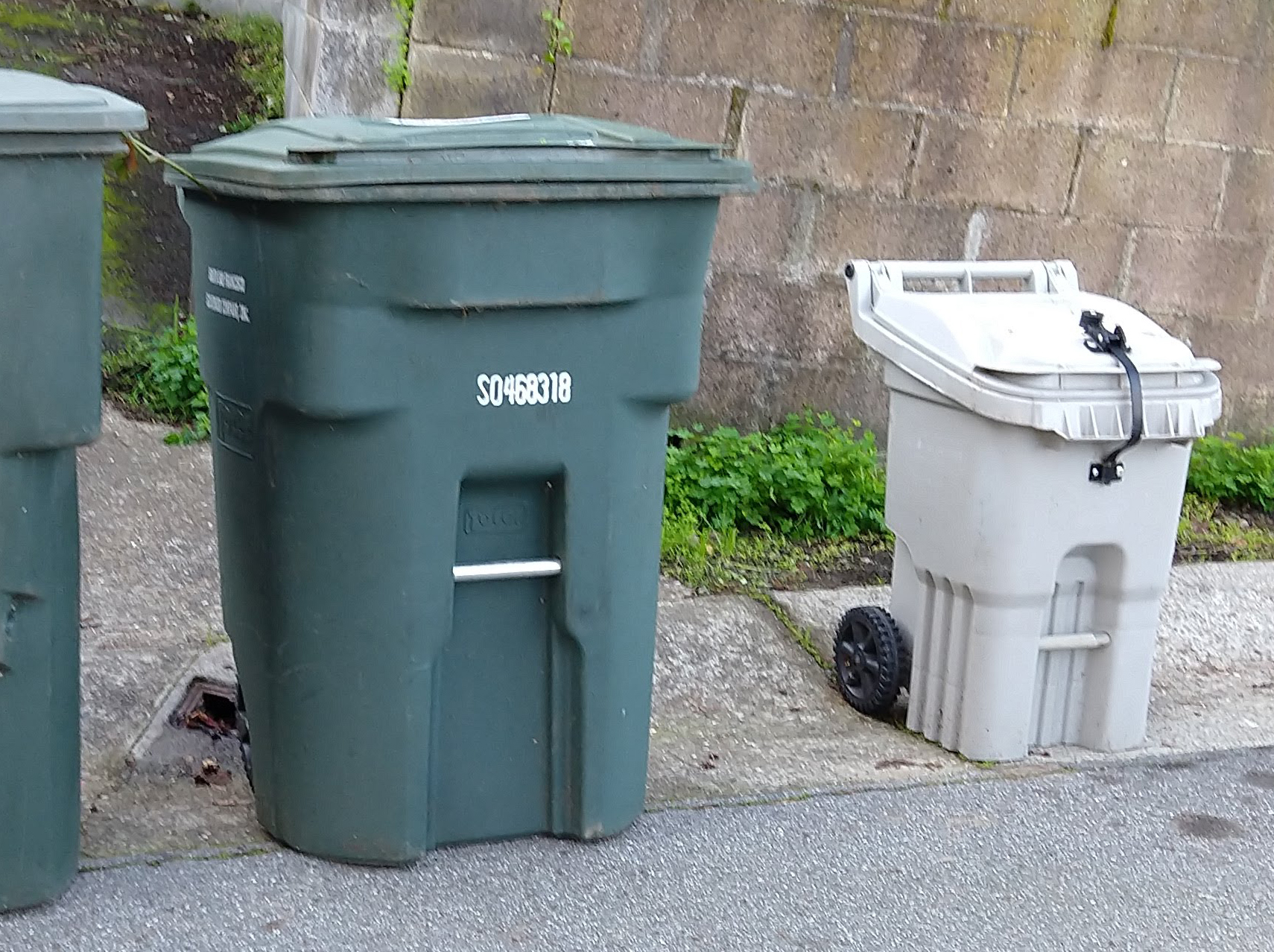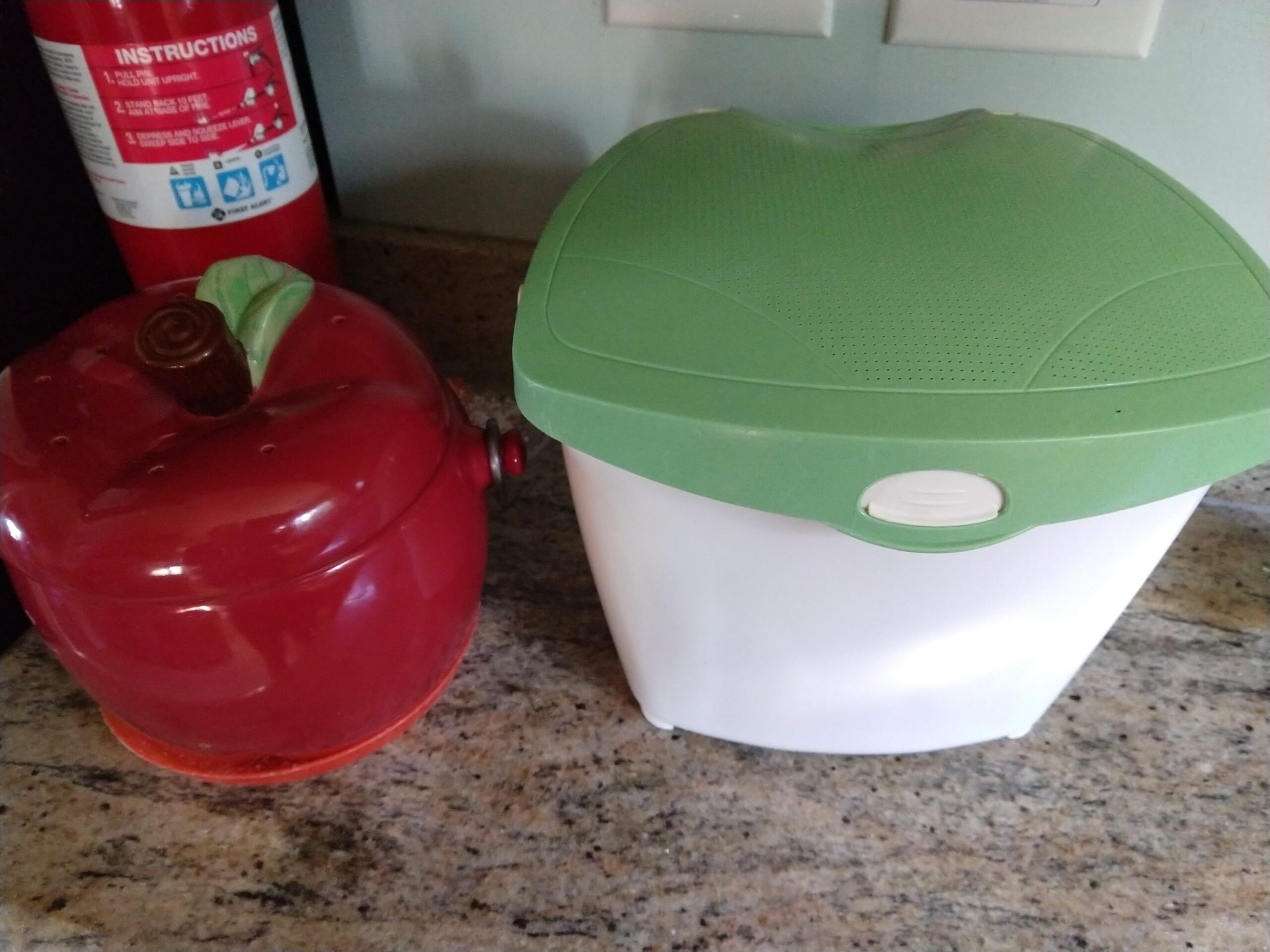California’s New Composting Law Effective Today

As a gardener, the new law that makes it mandatory for homes and businesses to separate food waste from trash is exciting to me. All that food and yard waste that was once going to a landfill (where it would compost anaerobically, creating methane) will now be composted to be used to grow more plants, or turned into biogas (which can power trash trucks! A closed cycle!). It’s a win-win!
If you were not already composting at home, however, I can see how it would be a weird new rule to add to the recycling we’ve all been doing for many years. The questions have already been flooding in:
What about the smell?
Can I put meat and bones in the bin?
Can I put animal waste from cats and dogs in the bin?
What if I just don’t want to do it?
Composting Becomes as Effortless as Recycling
Our household has been composting at home since 2008, since San Francisco already had a composting program at that time. When we moved to a town with no composting program, we just couldn’t bear to throw all those scraps away, so we composted the plant-based food waste ourselves until municipal composting in the yard waste bin became available.
For us, the benefits to the world, and even our own garden, were well worth the minor inconvenience of learning what to separate. It’s honestly not that difficult and becomes second-nature. When recycling became a thing, it was an adjustment, but you wouldn’t dream of tossing a soda can in the trash bin anymore, would you?
What about the Smell?
This question is kind of hilarious to me, because what on earth do you mean? The smell of…the SAME FOOD YOU WERE ALREADY THROWING IN THE GARBAGE? Unless you were using some kind of space-age diaper-genie-type system to hermetically seal away your food waste, I’m pretty sure you already had smells to deal with. All you’re doing is separating the food from the actual trash. It’s the same stuff.
Now, keeping a separate bin somewhere, that is a little tricky if you have a small kitchen, and with our family, we actually have two compost bins–one for plant materials only (for home composting) and another for municipal composting (animal bones, meat, and hard-to-compost material like avocado pits).
We do use the plastic bin that the City gave us, but I have to say, it’s not our favorite when it comes to cleaning. Plastic just doesn’t get clean well by rinsing, and we don’t want to wash the thing every time we empty it.
We also use a ceramic apple-shaped bin that was gifted to us. I don’t love the lip of the ceramic one, but the cleanability is definitely better.
There are also some great metal options out there, though I recommend measuring your countertop height before purchasing AND opting for a ceramic-coated or paint-sealed metal bin so you don’t have to deal with rust.
We line our compost bins with either newspaper (weekly ads) or toilet paper wrappers from Who Gives a Crap which are actually the perfect size. These help contain liquids and make dumping the contents into the outside bin that much easier. Smell is almost never an issue because we fill the bins at least twice a week and have to empty them.
Some have suggested freezing compost and then dumping it outside when you have enough. If you don’t cook much at home, or just don’t have a lot, this method may work for you. My mother in law actually does this with her garbage, since they don’t have compost where she lives, and living alone she just never has enough garbage to take it out often enough.
Can I put meat and bones in the compost?
This depends on your city’s rules. I’m sure if composting is new to your area, you will get some educational literature about what is OK and what’s not. For instance, our City does not allow compostable plastic bags in the compost bin because they use the compost to create biogas and so the bags hinder that. Pay attention to what your municipality instructs and you should get to know the rules quickly.
Can I put animal waste in the bin?
So cats and dogs are carnivores and omnivores, respectively. Their waste should NEVER be put in the compost bins (or backyard compost) unless explicitly stated by your municipality. And, while chicken/rabbit/vegetarian animal waste is GREAT for backyard compost, again, you need to see what the rules are where you live regarding the bin.
What if I just don’t want to do it?
Sorry, that will not do. Cities will be implementing inspections and fines for citizens who do not compost their food waste. While I imagine most of their concentration on punitive measure will be aimed at restaurants and grocery stores, who also need to send their human-edible food to Food Banks, the fines will not be fun. Also, food waste in landfills is terrible for the environment and this is a small inconvenience for what will end up making a huge difference. Let’s take better care of our world!
An unexpected benefit of home composting: downsizing your trash can!
Our home composting has significantly reduced our trash output as a household. This means we were able to downgrade our trash pickup bin to the smallest size (which saves money) and we do not use those “tall kitchen bags” anymore. We get the 10-gallon small office trash bags from Costco and that box lasts us several years.
I am so proud that California has taken this bold step to reduce the harmful practice of sending compostable material to landfills, and I hope that, even if you are hesitant now, you will feel the same soon. Happy composting!

